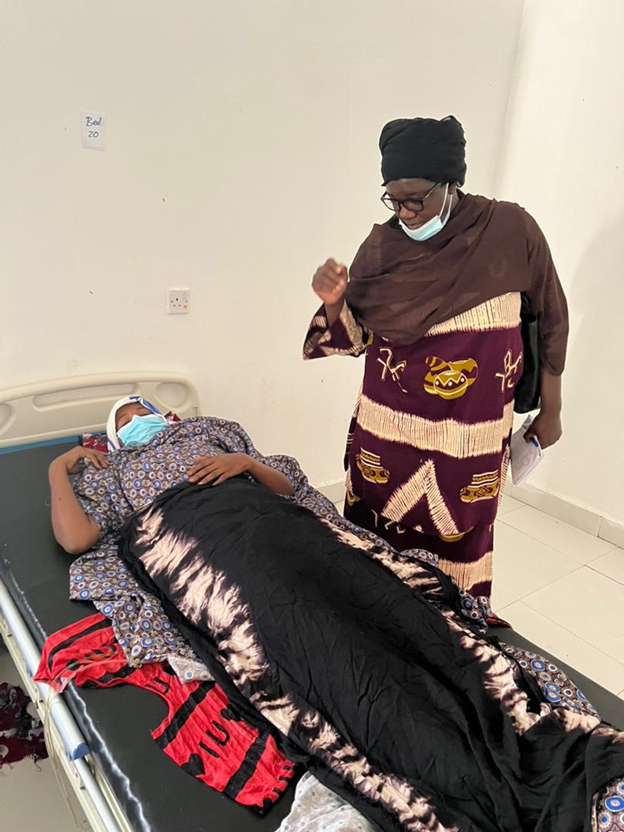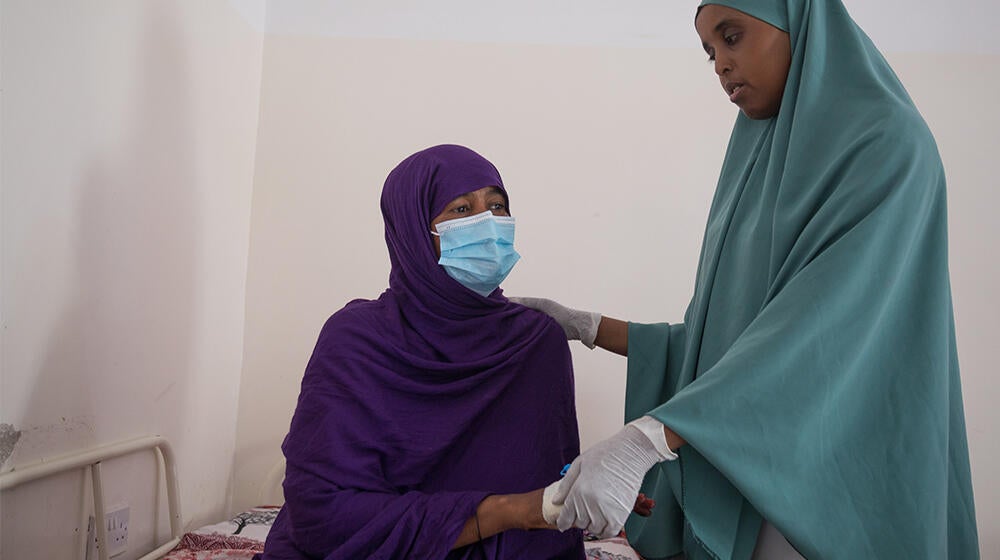Six years ago, Astur was joyfully awaiting the birth of her first child. Like many Somali women, she got pregnant as a teenager. Unfortunately, she didn't seek any medical assistance or antenatal care during her pregnancy. Hailing from the Hudur district, Astur didn't perceive the importance of seeking healthcare since she believed she wasn't sick.
The problems began when she started experiencing labor pains. She endured seven consecutive days of labor without seeking any medical help. Tragically, her prolonged and obstructed labor resulted in the stillbirth of her baby. The following day, Astur noticed that she could no longer control her urination. The difficult labor had caused her to develop vesicovaginal fistula (VVF), a type of Obstetric Fistula, where an an abnormal opening is formed between the vagina and the bladder.
Obstetric Fistula is a devastating childbirth injury characterized by an abnormal opening between the birth canal and the bladder or rectum. Primarily caused by prolonged labor, this condition is almost entirely preventable. Tragically, Ninety percent of pregnancies affected by Obstetric Fistula result in stillbirth. The impact of Obstetric Fistula is profound, leaving women and girls incontinent, experiencing the distressing leakage of urine, feces, or both. Gender discrimination and social marginalization make impoverished and underserved individuals more vulnerable. Shame and stigma surrounding the condition hinder women from seeking treatment, leading to long-term health problems, depression, and poverty.
Astur continued to live with an uncontrollable urine leakage for years. Despite her painful experience, she became pregnant again. After undergoing three days of labor with her second pregnancy, Astur was finally transferred to Banadir Hospital, where a caesarean section was performed. Unfortunately, this baby also did not survive.
According to a health worker at the National Fistula Centre in Daynille Hospital, early marriage, teenage pregnancies, female genital mutilation and such deeply rooted cultural practices, have severe implications for adolescent girls who become pregnant. Facing the burden of pregnancy during a crucial stage of their reproductive system development, requires extensive follow-up care, which is not possible in Somalia, where access to maternal healthcare is already challenging. Currently, approximately 13,330 women in Somalia are affected, with fewer than 200 receiving surgical repair annually in the past decade. The shame and stigma associated with this condition often prevent affecte d individuals from seeking treatment, leading to chronic medical problems, depression, social isolation, and perpetuating the cycle of poverty.
In April 2021, Astur finally began seeking help to correct her urinary issues and underwent a fistula surgical repair. However, the surgery was unsuccessful due to the challenging positioning of the fistula.
Fistula Repair in Daynille

Following the failed surgery, Astur ostracized from her home, was living with her sisters. When she heard about the planned Fistula Surgical Camp in 2022 through a radio announcement, she visited the hospital with her sister. There, she was assessed and successfully operated on by Fistula specialists. Upon realizing that she no longer experienced urine leaks, Astur was overjoyed and filled with hope for better days ahead.
"I am very happy today when I woke up and my bed was not wet. I am hopeful that I will get much better when I get home," she expressed gratefully. She added, "I would like to thank all the doctors who have attended to me since I came and for giving me free surgery."
Daynille General Hospital hosts the National Fistula Centre, where an annual fistula camp is organized by Physicians Across Continents (PAC) with the support of UNFPA and other partners.
Obstetric Fistula in Somalia: The Need for Urgent Action
United Nations Population Fund (UNFPA), as a committed partner in the fight against obstetric fistula, has trained around 3,000 midwives in 15 midwifery schools, contributing to safer childbirth experiences. Between 2022 and 2023, UNFPA supported over 138,000 surgical repairs, restoring health and dignity to affected women and girls. However, to achieve the goal of eliminating obstetric fistula in Somalia by 2030, efforts must be intensified by at least tenfold.
Preventing obstetric fistula involves ensuring women have access to quality healthcare, including emergency obstetric and newborn care, skilled health professionals during childbirth, and universal access to modern contraception. Additionally, health systems should prioritize tracking prevalence, addressing gaps in care, and ensuring a competent and motivated health workforce. Gender discrimination and factors contributing to maternal mortality and morbidity must also be addressed in national health plans.
Somalia's current humanitarian and climatic crises have further compounded the risks faced by women and girls, particularly in cities like Beletweyne and Bardheere, where displaced individuals lack access to skilled birth attendants and emergency obstetric care. Displaced, impoverished, underserved, and marginalized women and girls bear a disproportionate burden of obstetric fistula and maternal mortality.
The launch of Somalia's National Strategy for the Elimination of Obstetric Fistula in May 2023, marks a crucial milestone in shaping more responsive and effective health systems to prevent and manage this condition. As the lead for the global Campaign to End Fistula for the past 20 years, UNFPA welcomed the launch and emphasized the need for increased investment and strong political leadership, to create a future where every woman and girl in Somalia receives the necessary care and support during childbirth, ultimately eradicating obstetric fistula and empowering women and girls for a more just and prosperous society.



